

On April 8th, 2012, John Stewart made a reference to the old World of Warcraft meme Leeroy Jenkins while talking about the Romney/Obama race. When I saw it, I had been playing World of Warcraft for a few months now, and I had just gotten my Dwarf Hunter to level 80, which was the cap at the time. I remember watching the clip and John Stewart’s enthusiasm for the joke and finding it more wearying than funny. It was like watching an old man try to look relevant by making a joke about the Star Wars kid—at that point it was just old news, but here was John Stewart, laughing and getting all excited about the reference.
It was a telling moment for me. Because even now, it’s a reminder that World of Warcraft is still king. A silent king, a declining king, but a king nonetheless. When most people—hell, when most GAMERS—think of an MMO, World of Warcraft is the first one that pops to their mind, even if they have no idea what a Pandaria is. And the MMO world has been radically shaped by its presence—in the MMO galaxy, World of Warcraft is the black hole in the middle, generating so much gravity every other MMO cannot help but circle around it, no matter how close or far they are from the center.
But it won’t be that way forever. There were MMO’s before World of Warcraft, and there will continue to be MMO’s after World of Warcraft. But the game has left it’s mark on the development of the future of the industry , largely because it’s forced innovation out of developers who would have otherwise been complacent to merely copy a formula. But I’m getting ahead of myself, let’s take this one step at a time—pre, during, and post World of Warcraft.
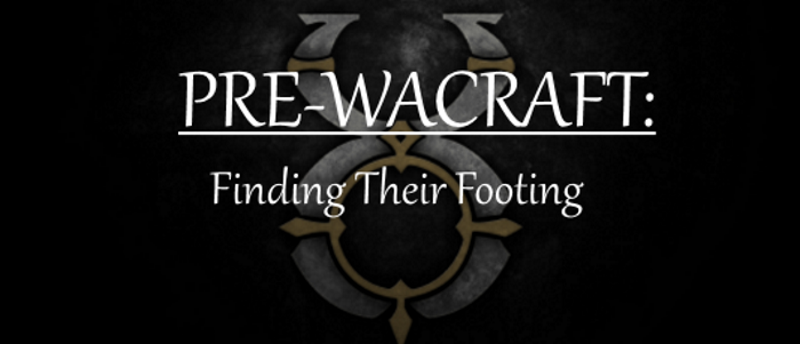
While Ultima Online wasn’t the first MMO in existence, it’s often given that honor much in the same way Pong is given the honor of being the first “game”: not the first of its kind, but the first POPULAR version of its kind. It was also the precursor to one of the most common themes in MMORPG’s for years to come: over-hype in the marketing phase. As revealed by Richard Garriott in a web interview three years ago, they had planned—and marketed—a “artificial life” system where the world was alive, vibrant, and responded to the actions of the players. A cited example was rabbit population: not enough rabbits, wolves would hunt more deer. Less deer meant the dragon went hungry so it would attack a village for food. It was overambitious and easily foiled, since “all the players went in and just killed everything; so fast that the game couldn’t spawn them fast enough to make the simulation even begin”.
Ultimately, the artificial life system wasn’t launched with Ultima, and it’s certainly not what the game is remembered for, but bear it in mind.
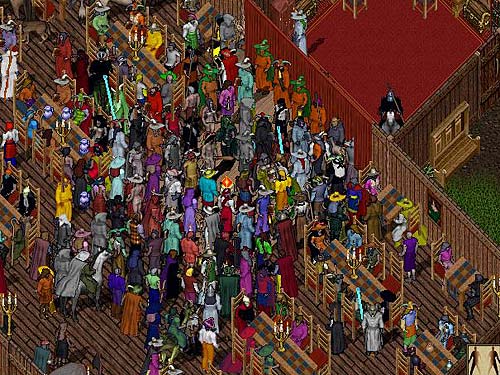
There were other famous MMORPG’s pre-Warcraft: Runescape, which acted generally as the first MMO anyone played before they graduated into something deeper. Star Wars Galaxies was launched in 2003 and acted as a precursor to MMO’s like Guild Wars that use more real-time movement and cooldown-based combat. EVE Online brought space combat and a political and economic system so complex you could turn running a company in-game into a full-time job.
But then we have the granddaddy’s of your World of Warcraft: games like Final Fantasy XI, Everquest, and Dark Age of Camelot. These were the games that acted as the inspiration and foundation of the gameplay systems that World of Warcraft used: PvE that focused on agro management and DPS, multiple classes with explicit but flexible roles, mana-based combat with ability rotations and situational management being the key draw. Guilds, quest systems that reward grinding and exploration, ect.
And then, come 2004, we got the MMO that would change it all… by changing nothing.
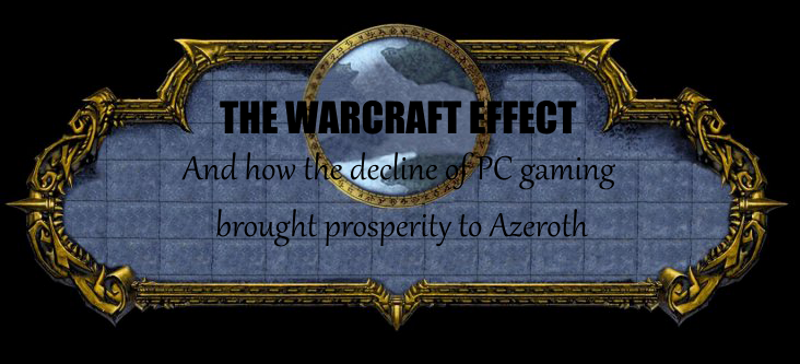
Like I stated in the paragraph above this one, Warcraft wasn’t really breaking any boundries when it first came out. It was actually a fairly safe title; there was nothing it offered that wasn’t offered in any other game. It wasn’t the first MMORPG to be based off a pre-established series, Ultima Online, Toontown Online, Final Fantasy XI all broke that barrier first. It wasn’t the first game to use rotation heavy mana-management systems, or the first game with aggro-DPS style dungeons and raids. Why, it could hardly be called the first of anything.
But while it borrowed dozens of concepts and elements from other gamers, it wasn’t complacent just using those elements—it MASTERED them. Classes (well, SOME classes) were flexible, the art style was both clear and easy on computers, it turned tutorials into hooks to draw people in from level 1, and Blizzard already had a reputation for quality games thanks to Starcraft, Diablo, and of course Warcraft the RTS. They created a great game, and word of mouth did the rest. But is that the ONLY explanation?
World of Warcraft didn’t start as a smash hit—at launch in 2004, that was during the era when people feared for the failure of PC gaming and suggested (wrongly, obviously) that PC gaming might eventually go extinct. Sales of PC games were on the decline, as well as gaming-ready PC’s, and even the launch of Doom 3 and Half-Life 2 wasn’t enough to put a stop to the bleeding. This was also the year Nintendo revealed the Wii, which would go on to dominate console sales.
Things only got worse as things were moving into 2005-2006—Sony and Microsoft both revealed and released their next generation consoles those years, and with Halo and Grand Theft Auto pulling more eyes away from their PC’s and towards the future of consoles, things were looking grim for the dedicated PC master race.
And just look at the MMO releases for around those years. It’s all crap, except maybe Perfect World and the original Guild Wars. But all those factors may have been the ultimate secret to World of Warcraft’s success: World of Warcraft was so good, you could almost trust any PC gamer to have a copy. In that sense, you could almost see World of Warcraft, at the time as a giant virtual hub for like-minded PC gamers, rallying against the approaching console world. Remember, back in those days the console wars were a very real thing, and the Playstation 2 was pretty much dominating the entire gaming world at that point: the idea of having a game unique to PC’s that could act as almost a social site for PC gaming aficionados must have been extremely popular at the time.
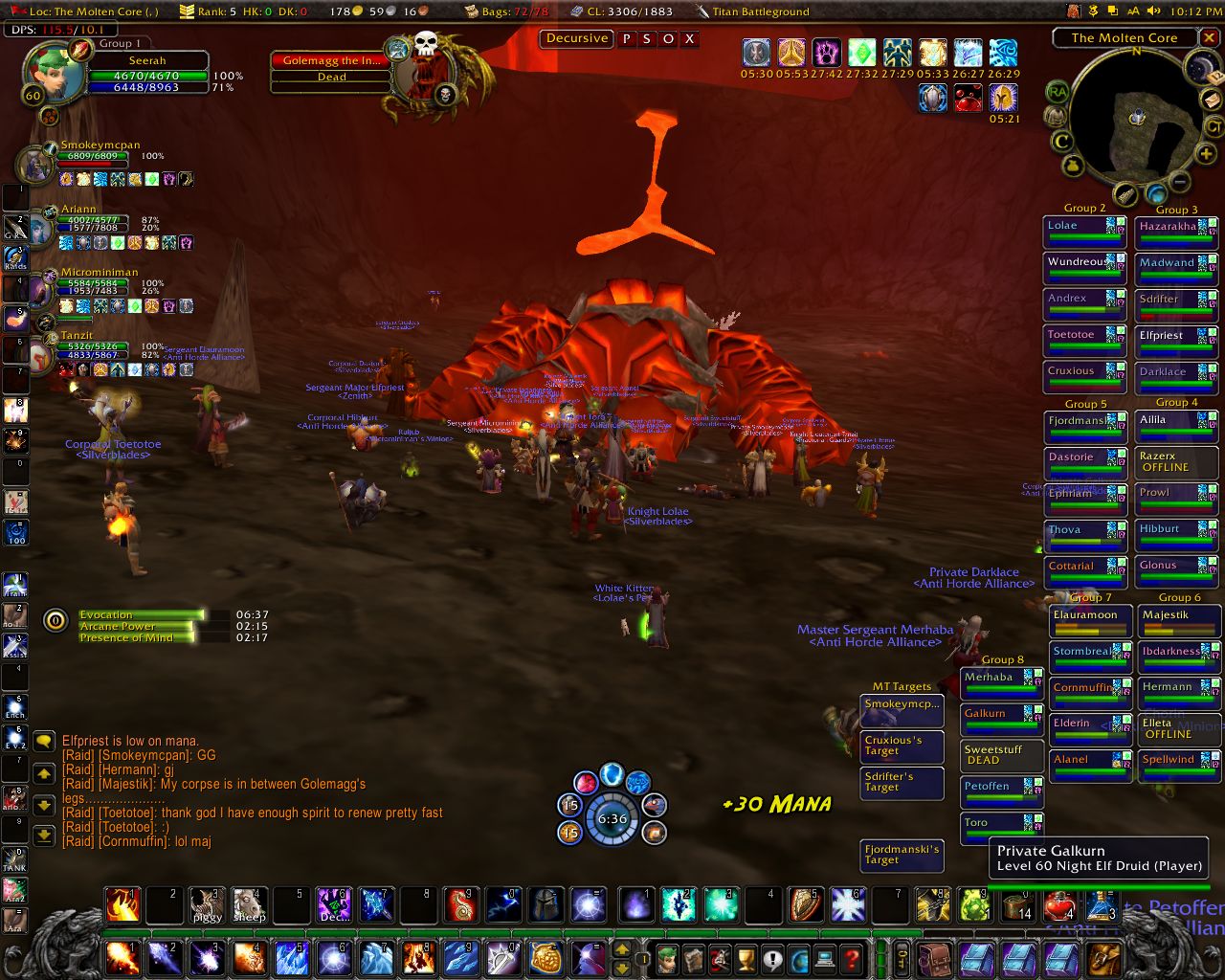
So a combination of a high-quality game with the separation of gaming fandoms into “tribes” really bolstered the community—and when you have an MMO with millions of players, well, it becomes sort of a self-perpetuating machine at that point. In MMOs, players are content, and so WoW simply had the most content. People flocked over, made friends, and they didn’t want to leave because they didn’t want to leave their friends, even if a more enticing MMO happened to come along. Social focus meant that the game could dig it’s nails into players and keep them hooked for months and years to come.
During the heyday of the WoW boom, it’s safe to say the competition didn’t have much of a chance; and there’s a reason for that. If you recall, World of Warcraft didn’t ‘invent’ any of the elements of concepts that made it such a popular game: it simply mastered them and added a very appealing coat of paint. MMO’s that followed learned that lesson, but made the mistake of trying to repeat it. So we got games like Dungeons and Dragons Online, Age of Conan, Lord of the Rings Online, that borrowed heavily elements from World of Warcraft, added their own twist, but failed because they didn’t do enough to distinct themselves from their esteemed competition: if you’ve got two MMO’s that are functionally similar, you’re going to pick the one that has the most content—and that’s still World of Warcraft.
Of course, there were games that tried to challenge the formula who ALSO failed. Myst Online missed the Myst craze by about five years. Love tried to use player interaction and a lack of any ridged formula to draw more creatively-minded players into its world. Dynasty Warriors Online ironically enough couldn’t compete with its console counterpart and fell into obscurity.
But nothing can last forever…
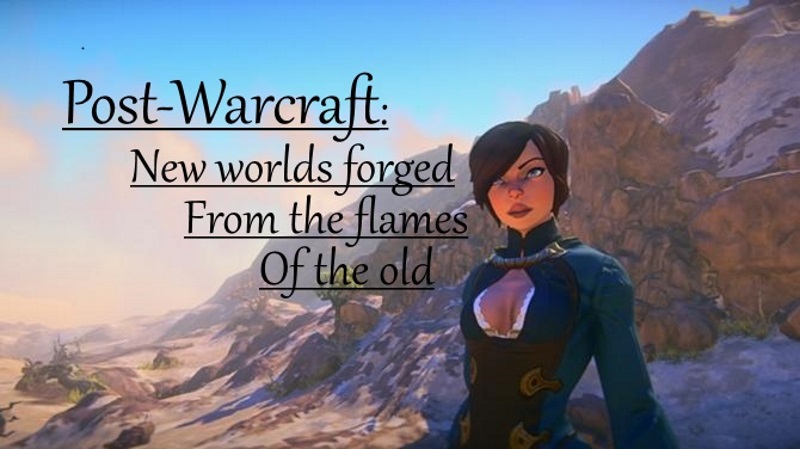
At its peak in 2010 World of Warcraft had over twelve million active subscribers. And it’s been a slow bleed ever since. Four years and three expansions later, the subscription numbers for World of Warcraft are sitting at seven million—nothing to snuff your nose at, and more than most MMO’s will ever see in their lifetime, but for the king, it’s a heavy blow. But what caused the downfall of World of Warcraft? Two things, mostly.
For one, developers figured out that copying WoW’s winning formula simply wouldn’t work… so it was time to copy some other formula’s instead. You see a lot more action-heavy action-reaction MMO’s come out around this time; Guild Wars 2, DC Universe Online, Secret World, Firefall, Star Wars: The Old Republic, Rift, Defiance, Wildstar, ect. MMO’s that rely more on personal skill and gaming talent over minimaxing your rotations and grinding for gear to simply have better ‘numbers’ than your opposition. But then, those games always existed in some way or another, even in the MMO World, so… what really caused the decline?

Easy enough to answer that: 2010, for those of you who can recall, was the rise of the casual/free-to-play gamer. An age of Popcap games and Zynga and the forever-loathed Farmville, but more essentially, the age of the free-to-play game and microtransactions. That was around the time that DC Universe Online made history by announcing they would be the first big MMORPG to attempt a free-to-play model to see how well it would help them deal with falling subscription numbers… and boy, did it work.
Other MMOs soon followed suit. Soon World of Warcraft found itself using an outdated subscription model in a world where you could play online for free… and the effects showed. It began a downward slope of lost subscribers that it has failed to stop in any significant way in the following years.
But like I said: World of Warcraft is still king. And the rest of the MMO World still lives in it’s shadow, affected by its laws and creeds. It’s still the center of the galaxy, and even when the day comes when it does fall from grace—which may be sooner, may be later—the MMO world will never recover from it’s impact on the genre. Because there’s something you have to realize when we examine this very brief summery of MMO’s past, present, and future: just about everything is done in RESPONSE to World of Warcraft. It has and continues to dictate the path of the MMORPG through its influence, and you can guarantee that during the development of every single one of the games I have listed above, someone had to ask “how could this game beat Warcraft?”
Warcraft has and will continue to shape the industry because it forced game designers to innovate and push boundaries. Nowadays you see MMO’s like Black Desert and Everquest Next—which promises a real “living” world just like the one promised by Ultima Online—doing amazing things for the sole sake of trying to usurp the throne currently owned by Warcraft. Warcraft showed the world just how much money a successful MMORPG can make—and even though copying its formula hasn’t worked, that money is still there, waiting to be claimed. So of course game companies will try again, this time using innovation in lieu of mere copying, because they will be willing to try anything to get that kind of cash. Ensuring PC gaming and MMO’s in particular never die.
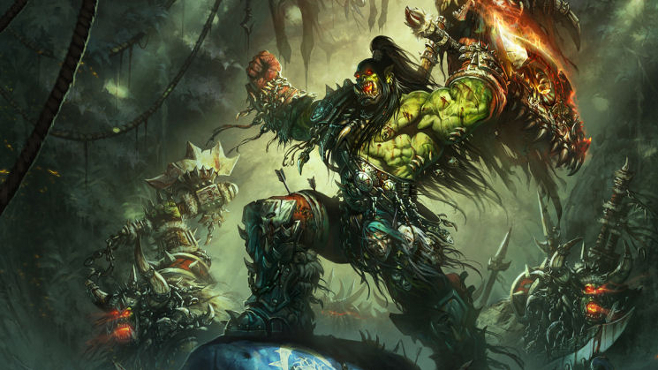
And a world after Warcraft will still REMEMBER the impact Warcraft had, and seek to emulate their success and learn from their lessons. Much like how the RTS world continues to be shaped by the original Starcraft, or how adventure games still take more than a few cues from the original Legend of Zelda. Or, if you want to get historical, much as every empire has tried to emulate the success of the Romans. So you can expect the MMO of the future, even long after Warcraft has passed, to have a little bit of Warcraft still in it… and to be a whole lot better in general due to the innovation Warcraft inspired.
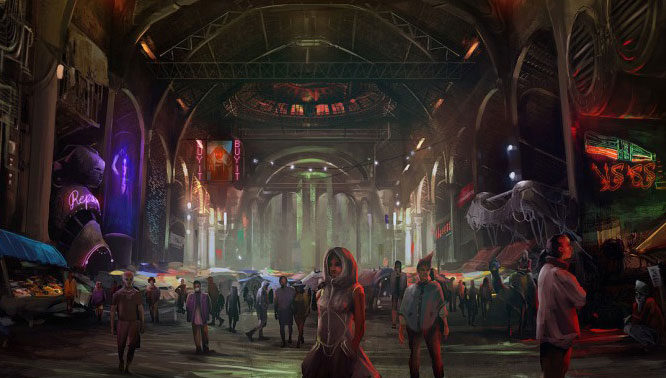
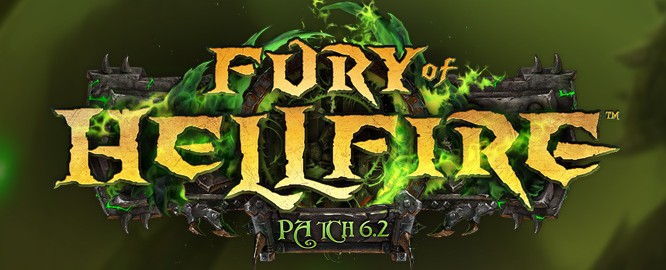

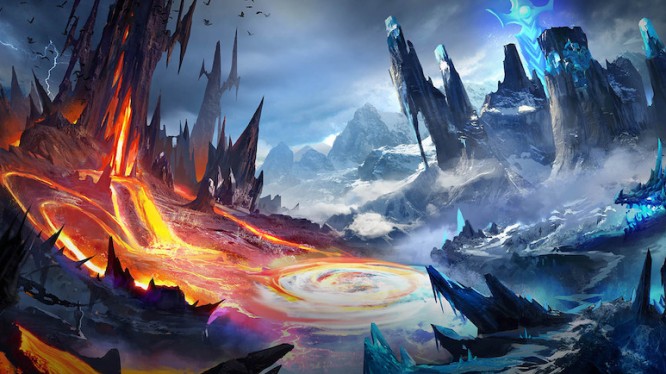
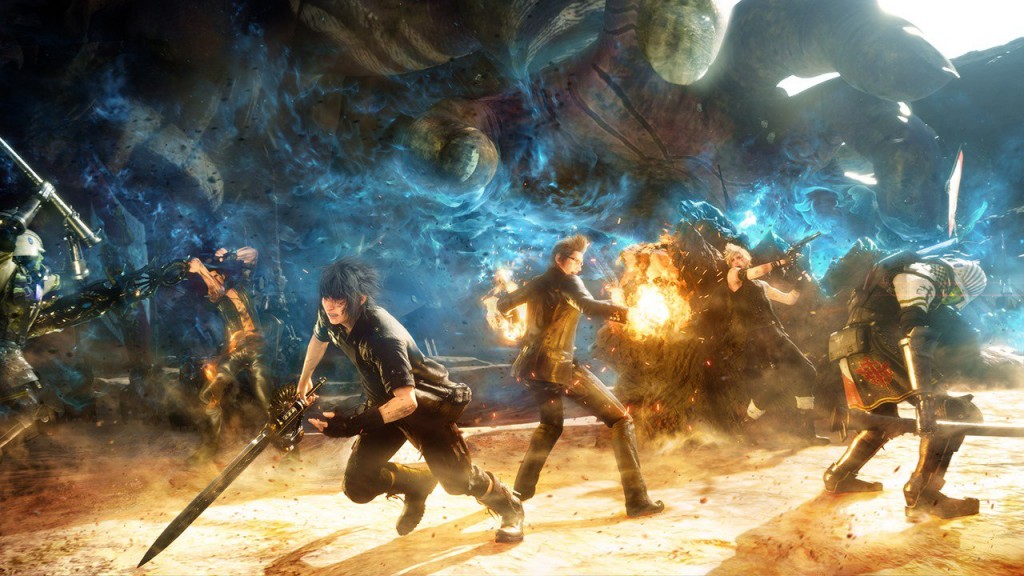 Final Fantasy XV Episode Duscae Demo: Easy Level Up And Experience Points Guide
Final Fantasy XV Episode Duscae Demo: Easy Level Up And Experience Points Guide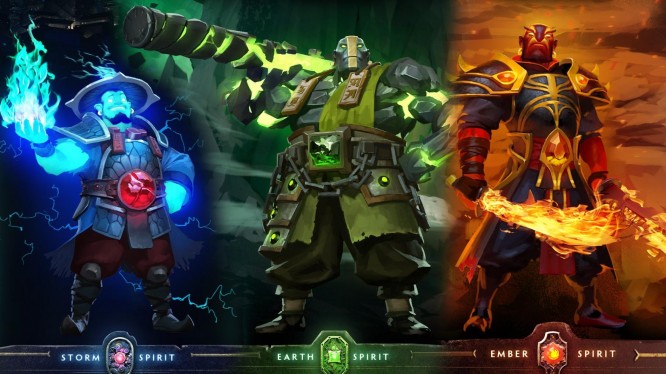 Dota 2's Impact on eSports .
Dota 2's Impact on eSports .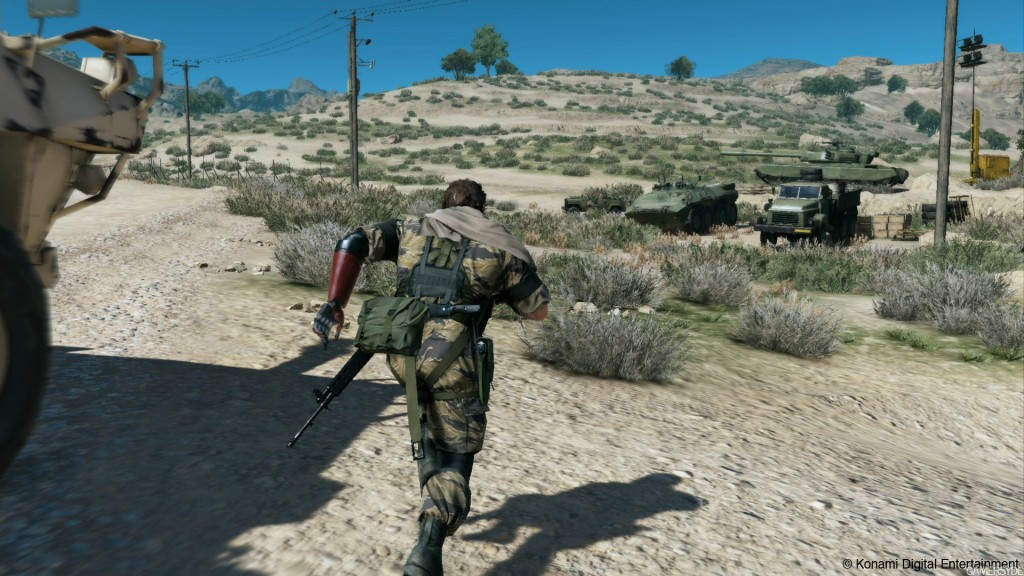 Metal Gear Solid V: The Phantom Pain Guide: How To Easily Farm And Get GMP Currency
Metal Gear Solid V: The Phantom Pain Guide: How To Easily Farm And Get GMP Currency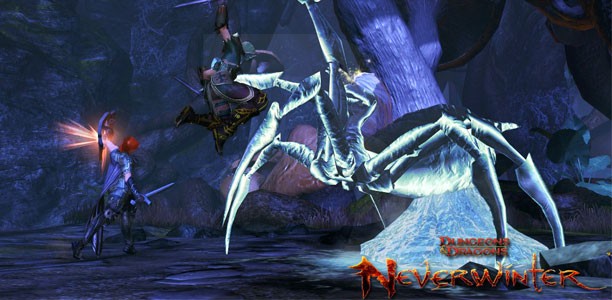 Neverwinter: Skirmishes, Dungeons and Other Challenges
Neverwinter: Skirmishes, Dungeons and Other Challenges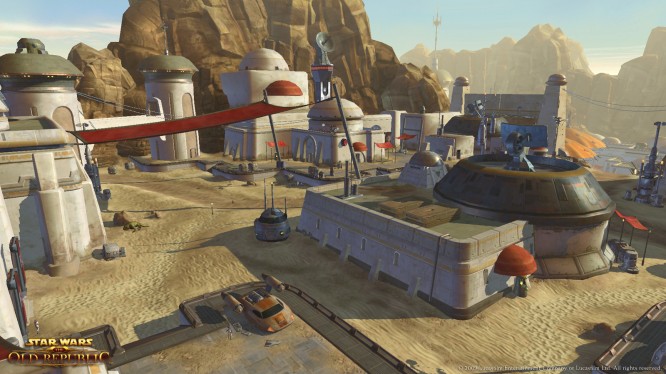 E3 2015: Watch EA's E3 2015 Press Conference Here .
E3 2015: Watch EA's E3 2015 Press Conference Here .